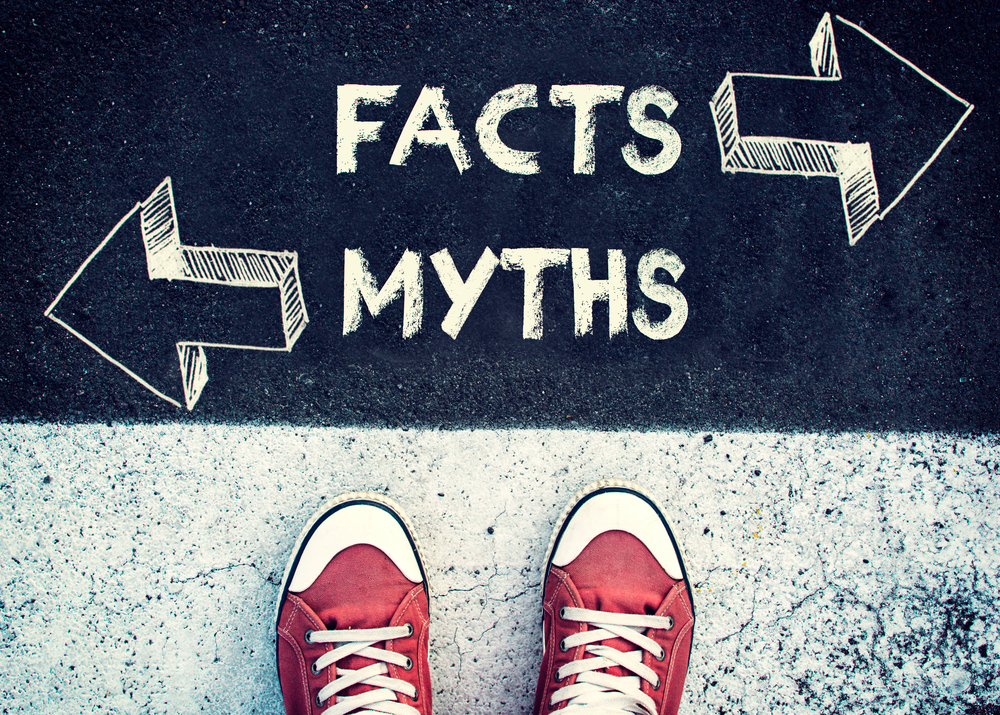
Common Myths of Hormone Replacement Therapy
Dispelling Misconceptions of Bioidentical Hormone Therapy
The spread of misinformation is an ever-pervasive occurrence, more now than it’s ever been before. Just as the Internet has connected our society in unimaginable ways since its conception, it’s also facilitated the spreading of falsehoods, conjecture, personal anecdotes framed as truths, and unfounded sensationalized claims. At the tips of our fingers, we’re able to access troves of knowledge; yet a sense of vigilance is required to navigate as to avoid stumbling into false information.
The field of hormone therapy, specifically bioidentical hormone therapy, is plagued with contradictions, myths, and misconceptions. When you aren’t sure what to believe, then making decisions often become fraught with doubt; your choice into pursuing bioidentical hormone therapy shouldn’t be bogged down by doubt because of the false information out there online. Down below are five of the biggest myths regarding bioidentical hormones; hopefully, by dispelling them, then perhaps the decision for selecting bioidentical hormone therapy can be illuminated as a valid treatment for your various aches and maladies.
Myths of Hormone Replacement Therapy
Myth 1. There’s an increased risk of stroke and heart attack
If you’ve stumbled across this myth online, then you’ve probably thought to yourself why anyone would willingly pursue treatments that would negatively put ones’ health at risk. The reality is that such claims are founded based on utilizing synthetic hormones, not bioidentical hormones. Given the synthetic nature of these manufactured hormones coupled with oral consumption, it puts stress on the liver to metabolize questionable compounds. With bioidentical hormones and utilizing estrogen, lotions to the skin or subdermal implantation of hormone pellets bypass any strain on the hepatic metabolism of the hormone. Thus, negating any side effects or adverse symptoms as seen with synthetic oral hormones.
Myth 2. Bioidentical hormones increase the risk of cancer
There’s some truth to the idea that hormones can increase the risk of cancer. That’s not saying that bioidentical hormones are at fault, as again, it’s the prevalence of synthetic hormones that bring the risks. Cancerous cells in the body can have what’s known as estrogen and progesterone receptors. The danger arises when synthetic hormones like Ethinyl estradiol are metabolized and exacerbate the hormone receptors of the cancerous cells. Bioidentical hormones, alternatively, only mimic the natural production of what the body makes and, therefore, aren’t introducing any abundant hormones that would pose an added risk.
Myth 3. These hormones cause weight gain
Yet another shortcoming of synthetic hormones, they can increase weight gain by causing water retention and the increased metabolization of a hormone called estrone or oestrone. Estrone is a hormone mainly synthesized in adipose, or fat, tissue. With an increased metabolization of estrone, the body is resistant to lose adipose tissue since the fat promotes a positive feedback loop for estrone synthesization. In layman’s terms, as the more estrone metabolizes, the more fat tissue is encouraged to synthesize it.
When choosing a means for delivering bioidentical hormones into the body, it’s suggested to utilize any transdermal system (creams or implantations) as studies show there’s less risk for weight gain compared to oral administration. Furthermore, bioidentical hormones can help towards weight loss as they’re designed to rebalance any hormonal imbalances causing weight gain.
Myth 4. Once starting hormone therapy, I will not be able to discontinue
This misconception is a peculiar one; the idea is that once you’ve started treatment, you’ll never be able to stop. Think of hormone therapy this way: someone can take vitamins or supplements to promote healthier hair and nails, increased muscle mass, or higher energy levels and then decidedly stop all of a sudden. That person’s body hasn’t developed a dependency on those supplements; there aren’t any negative ramifications for stopping. They may lose their shinier hair and nails or improved energy, but they aren’t left any worse than when they began.
This same principle applies to hormone therapy. You’ll experience the benefits of restored hormone levels while on it but can stop at any time. Quitting the treatment only brings you back to your original hormone baseline — it’s not as though you’re developing a dependency. Though, it should be noted that with age, hormone levels naturally decrease. Aging shouldn’t be confused with discontinuing hormone treatments as the cause for lowered hormone levels.
As long as you are taking the proper physiological doses, and blood work is monitored during therapy, your natural hormone production will not be impacted by the use of therapy. Do, however, avoid excessive physiological doses as this potentially could impact natural hormone production.
Myth 5. Once starting hormone therapy I will not be able to discontinue:
Just as one would take vitamins and supplements and they experience increased hair growth, better nails, and energy levels, the same goes for hormone therapy, while on hormone replacement you will reap the benefits, once you stop your levels will go back to baseline keeping in mind that your levels will continue to decline as we age. As long as you are taking physiological doses and blood work is monitored during therapy, and not super physiological doses as one may when they are taking anabolic steroids for competition, your natural hormone production will not be impacted by the use of therapy.

